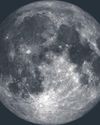
In Arthur C Clarke’s award-winning 1973 novel, Rendezvous With Rama, a mysterious 50km-long cylindrical spacecraft enters the solar system. A space mission is mounted to intercept it and study it before it flies back out and is swallowed up by the darkness of interstellar space.
Now, remarkably, science fiction is morphing into science fact. Astrophysicist Prof Avi Loeb of Harvard University believes ‘Oumuamua, a mysterious interstellar object that flew through the solar system in 2017, may have been an alien Rama-like artefact. But being a scientist rather than a science fiction writer, he wants data. “With that in mind, I have set up Project Galileo,” he says. “Its aim is to scan the heavens for the next ‘Oumuamua and send a space mission to fly by it and photograph it.”
More than 100 scientists, led by Loeb, are involved in Galileo. They are subtly shifting the emphasis of the Search for Extraterrestrial Intelligence (SETI) from looking for signs of alien biology or electromagnetic signals to hunting for objects as signs of alien technology. Loeb thinks this change is long overdue.
This story is from the July/August 2022 edition of Very Interesting.
Start your 7-day Magzter GOLD free trial to access thousands of curated premium stories, and 8,500+ magazines and newspapers.
Already a subscriber ? Sign In
This story is from the July/August 2022 edition of Very Interesting.
Start your 7-day Magzter GOLD free trial to access thousands of curated premium stories, and 8,500+ magazines and newspapers.
Already a subscriber? Sign In

HOW TO MASTER YOUR METABOLISM
Ready to welcome a leaner, healthier you? It's time for a metabolic makeover. With a few simple, research-backed changes, you can supercharge your body's calorie-burning

A BLUEPRINT FOR ANTI AGEING
Science says it's time to rethink - and take control - of our body's age. Here's how to slow, halt and potentially turn back your biological clock

THE BROKEN MIRROR
Body dysmorphia - the all-consuming obsession with perceived flaws in our looks - is sweeping the globe. One in five young people is thought to be affected. What can be done and how is tech changing the way we see ourselves?

SCROLL REVERSAL
Losing days by endlessly scrolling on your smartphone? You're not alone. Perhaps neuroscience can help us beat the urge

Going back to the moon
ARTEMIS AND A NEW DAWN OF LUNAR EXPLORATION

SAD CLOWN PARADOX: WHY TEARS OFTEN LIE BEHIND THE LAUGHS
Mental health issues are common among comedians and performing is just one way they can self-medicate

INDOOR AIR POLLUTION: HOW COOKING CAN DAMAGE YOUR DNA
From roast dinners to scented candles, there are potentially harmful pollutants lurking in every home

FARM OF THE FUTURE
Join the BBC's Planet Earth III film crew and go behind the scenes in the city farm that's transforming fields into towers and running almost everything with robots

COULD ONE BOMB DESTROY THE WORLD?
How big a bang are arms manufacturers capable of creating?

THE THREAT OF DAY ZERO
Queues at public water taps could become normal. What can we do to avoid them?